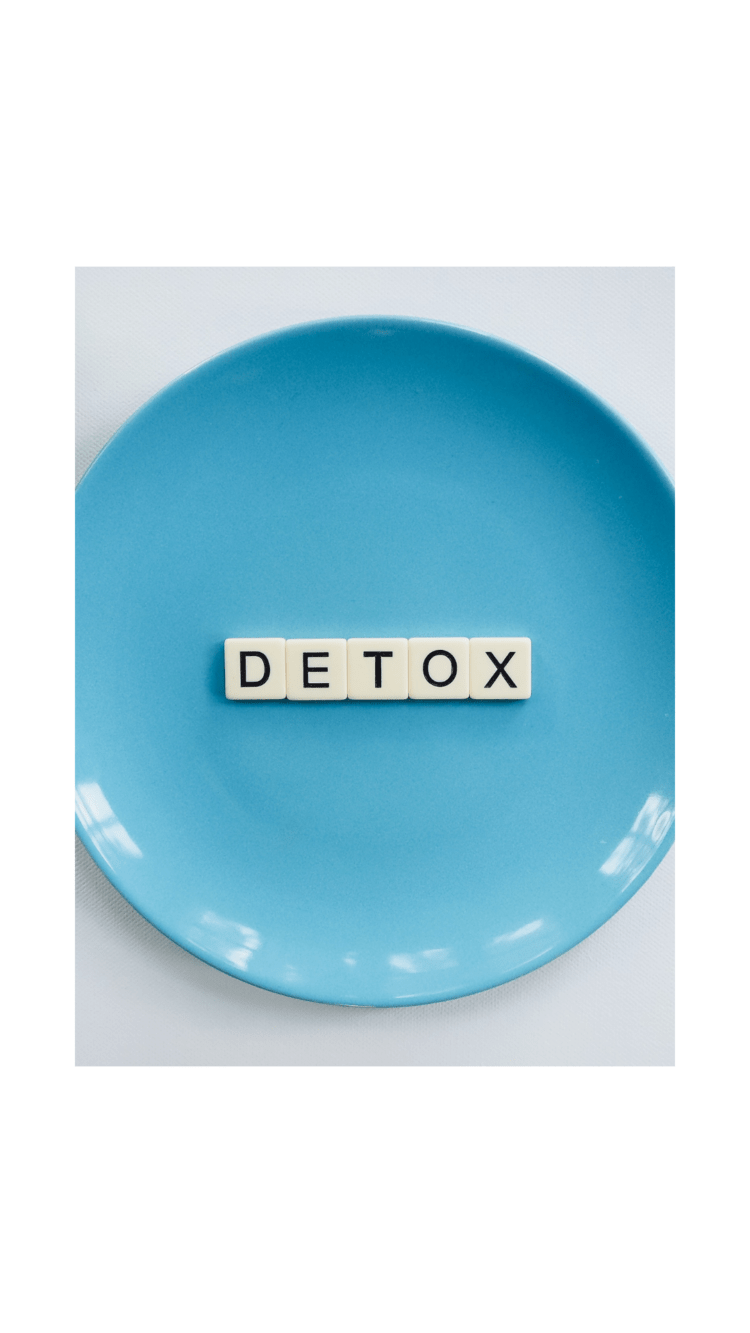Your body is constantly clearing toxic substances and byproducts of its own biochemical processes.
This is largely done by your liver but other organs are also involved, such as your kidneys, intestines and your skin.
During perimenopause and post menopause females may be affected more by the chemicals and toxins that we are exposed to.
The problem is that in our modern world, we may be exposed to hundreds of chemicals and toxins on a daily basis and some of these modern day chemicals cannot be metabolised by our bodies.
We consume them, we inhale them, we have contact via our skin and we make them in our own bodies.
In fact, it is estimated that in the Western world, women put around 168 chemicals on their bodies every day… This is in addition to exposure to chemicals and toxins from home cleaning products and fragrances, candles, plastic food wrap, plastic containers, non-stick pans, food cans, pollution, and pesticides and herbicides from the (non-organic) food we eat.
These toxins can accumulate in or bodies and disrupt our hormones and our metabolism.
This means that we can get a bit overloaded
Issues with detoxification can occur due to nutrient deficiencies and genetic variations.
Constipation can also cause the re-circulation of toxins and old hormones.
An increased ‘toxic load’ can over burden the liver and other organs. This can cause issues with weight loss, digestion, absorption of nutrients, and blood sugar balance.
Symptoms of poor detoxification can also mimic and increase peri/menopausal symptoms.
These include:
- Headaches
- Night sweats
- Brain fog and cognitive issues
- Fatigue
- Low mood
- Bloating and constipation
- Strong body odour
- Skin issues
- Adverse reactions to foods and drinks or sensitive to smells
Herbicides and pesticides from non-organic foods that have been sprayed with insect repellents and weed killers are often fat soluble and can be stored in the fat cells in your body and potentially causing resistance to weight.
Some of these chemicals have also been linked to hormone imbalances, obesity, neurological conditions such as Parkinson’s
The cosmetics and beauty products that you put directly on to your skin are absorbed into your body.
Here are just some of these chemicals:
- Sodium lauryl sulphate (SLS) – found in body wash, soaps, shampoo and conditioner
- Parabens – found in make-up, hair care products, moisturisers, fake tan products and shaving creams
- Phthalates – found in perfumes
- Aluminium chloride – found in anti-perspirant deodorants
- Octinoxate – Found in skin care products, nail polish, hair dye and sun cream
Many of these toxins are absorbed into our fat cells in our bodies and brains and some have been linked to an increased risk of neurological conditions, mind and mood issues including depression and weight gain.
Some chemicals are labelled as ‘Endocrine Disrupting Chemicals’ (EDCs). This means that they have the ability to disrupt your hormones and increase the risk of diseases such as type 2 diabetes, obesity, heart disease, cancers, thyroid function.
A sub-group of these EDCs are known as ‘obesogens’. These toxins are stored within the fat cells of your body. Your body will do all it can to prevent you being exposed to these harmful chemicals by blocking weight (fat) loss.
If you are able to lose weight upon release into the body, these toxins can cause fatigue, joint pain, headaches and flu-like symptoms. Once back inside the body they can damage your cells and increase your risk of disease.
One of these chemicals is Bisphenol A (BPA). It is commonly found in plastic water bottles, plastic food wrap and containers, till receipts and on the inside of tins of canned foods and it could disrupt hormones.
5 ways you can reduce your toxic load
- Eat foods, herbs and spices that support your liver and the detoxification pathways in your body – green leafy vegetables (cabbages, broccoli, kale, Brussels sprouts, rocket, watercress, Bok choy), garlic, onions, asparagus, beetroot, artichokes, radishes, chicory, fermented foods (kimchi, kefir, sauerkraut, miso, live yoghurt), rosemary, ginger, turmeric, parsley.
- Switch to organic and wild foods or wash all non-organic fruit and vegetables in a water with a small amount of vinegar or lemon juice. Check the latest ‘Dirty Dozen’ (most sprayed foods) https://www.ewg.org/foodnews/dirty-dozen.
- Use a water filter and avoid plastic water bottles, especially if they have been exposed to heat as the chemicals can be transferred into the water.
- Use an app like this one https://www.thinkdirtyapp.com/ to check a for chemicals in your beauty and home care products.
- Use BPA free canned foods and bottles and avoid plastic food wrap and containers – Mr Organic
For further information on DNA testing contact gail@gailbradynutrition.com.
IF you would like to find out more about how personalised nutrition and lifestyle could help you to regain control of your health and hormones watch my FREE video HERE




